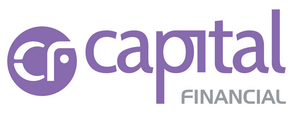Keeping a balance between productivity and employee well-being is crucial. With the rise of remote work and flexible schedules, employers are increasingly turning to employee tracking systems to ensure that their teams stay on track without burning out. Let’s explore how employee tracking can help prevent overworking and promote a healthier work-life balance.
How Employee Tracking Helps You Prevent Overworking?
Monitoring Work Hours
Employee tracking software allows employers to monitor the number of hours their employees are working accurately. By tracking work hours, employers can ensure that employees are not exceeding their designated work hours, thus preventing burnout and fatigue. Additionally, monitoring work hours helps in identifying patterns of overwork and addressing them proactively. Employee tracker like Controlio can help you grow your business.
Setting Limits and Boundaries
Employee tracking software enables employers to set limits and boundaries regarding work hours and expectations. By establishing clear guidelines on when employees should be working and when they should take breaks, employers can help prevent overworking and promote a healthy work-life balance. Setting limits also helps in fostering a culture of respect for personal time and boundaries among employees.
Identifying Workload Imbalances
Employee tracking software provides insights into individual workloads and productivity levels. By analyzing data on task completion rates and time spent on different activities, employers can identify employees who may be overburdened with work and redistribute tasks more evenly. This helps prevent overworking in certain individuals and ensures that workloads are distributed fairly across the team.
Encouraging Time Off and Rest
Employee tracking software can be used to encourage employees to take regular breaks and time off. By tracking work hours and productivity levels, employers can identify when employees are working excessively and encourage them to take time off to recharge. Encouraging rest and time off helps prevent burnout, boost morale, and improve overall productivity and job satisfaction.
Promoting Flexibility and Autonomy
Employee tracking software, when used appropriately, can promote flexibility and autonomy among employees. By allowing employees to track their own work hours and productivity levels, employers empower them to manage their time more effectively and take ownership of their workload. This can help prevent overworking by giving employees greater control over their work schedules and priorities.
Supporting Mental Health and Well-being
Overworking can take a toll on employees’ mental health and well-being. Employee tracking software can help employers identify signs of stress and burnout early on and take proactive measures to support affected employees. This may include offering additional resources, counseling, or flexible work arrangements to help employees manage their workload and maintain a healthy work-life balance.
Employee tracking software can be a valuable tool for preventing overworking and promoting a healthier work-life balance. By monitoring work hours, setting limits and boundaries, identifying workload imbalances, encouraging time off, promoting flexibility and autonomy, and supporting mental health and well-being, employers can create a work environment that prioritizes employee wellness while maintaining productivity and efficiency. Ultimately, fostering a healthy work-life balance benefits both employees and employers by reducing stress, improving morale, and enhancing overall job satisfaction and performance.




